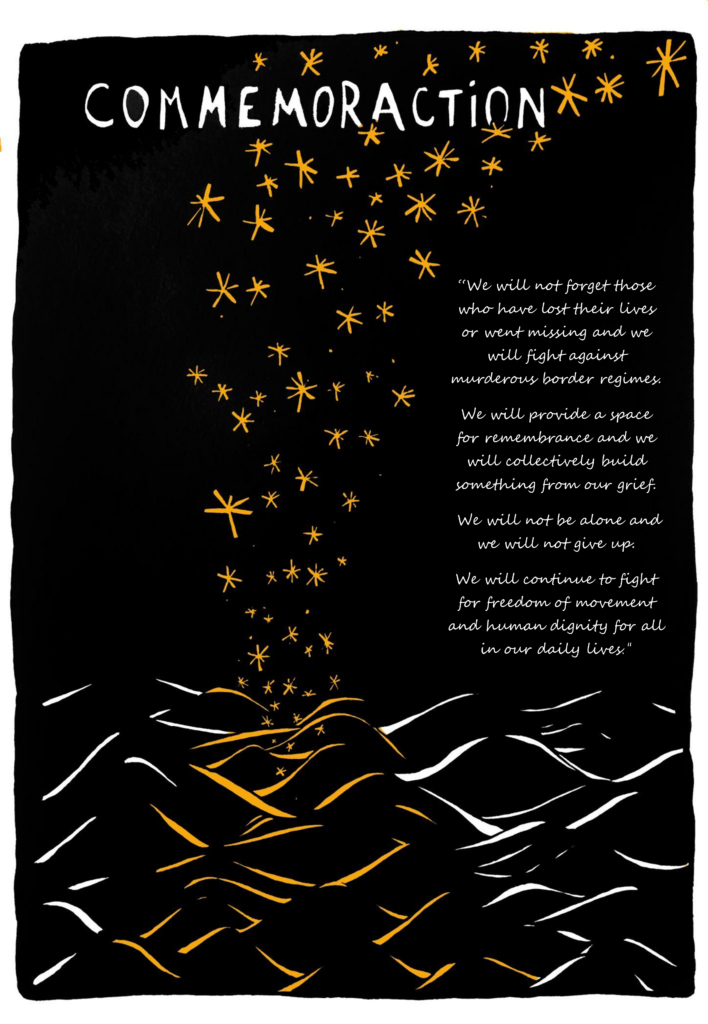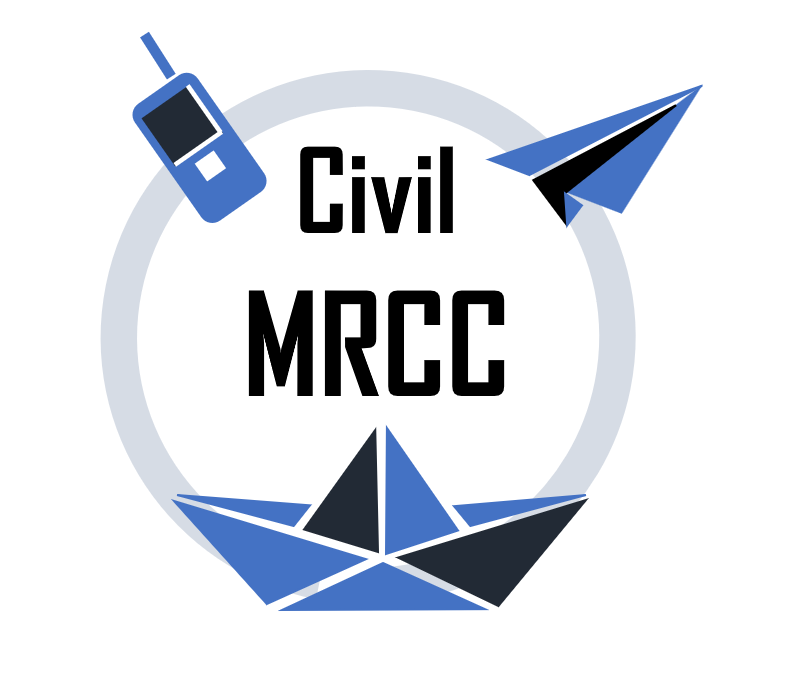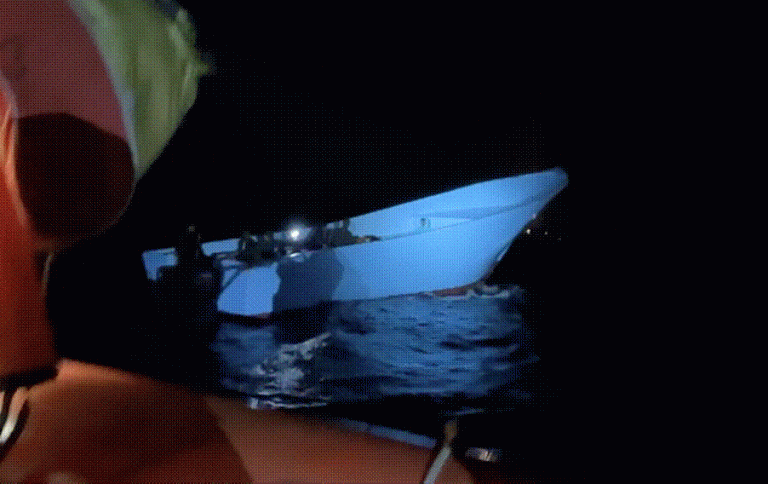Counting the Dead and Missing
In recent years, various initiatives have been launched which attempt to count the numerous dead and missing persons at the borders of the European Union. The organization “United” was among the first to try to count and (where possible) find the names of the deceased or disappeared. Gathering figures in order to measure the extent to which the Mediterranean has become a mass graveyard in recent years. Naming these disappearances so that the accumulation of numbers does not make us forget that, behind each number, there is a human being, an individual story, a broken life and a mourning family.
While for a long time this counting was left to civil society, states being disinterested in revealing the deadly consequences of their policies, in 2014 the International Organization for Migration (IOM) created a specific database called the “Missing Migrants Project”, providing figures and information about people who died or went missing in migration journeys around the world. As of August 2022, the IOM has counted more than 24,500 deaths in the Mediterranean since 2014, including nearly 17,000 deaths and disappearances in the central Mediterranean alone. For the IOM, this makes the central Mediterranean at present the deadliest route for people on the move (though it should be noted that recent estimates from civil society organizations regarding crossings to the Canary Islands question this assessment). Even these figures, however, do not do justice to the terrible reality in the region – as they do not for example include shipwrecks which are not accounted for, or those for which the IOM believes that there is insufficient evidence.
A Cynical Instrumentalization
Even if counting the number of dead or missing persons is essential in order to make visible and denounce the disastrous nature of migration policies in the Mediterranean, the intentions behind the production of such figures are not always good. In fact, for several years now counts of the dead and missing have been cynically used towards servicing increased mobility controls, as illustrated by rhetoric used by the European Union. “Migration along the central Mediterranean route. Managing migration flows, saving lives.” This is the title of the brief by which the European Commission formalized the outsourcing of migration controls to the so-called Libyan coastguard in January 2017. To respond to the “tragedies” in the Mediterranean, which in 2016 had cost the lives of more than 4,500 people, the Commission proposed the creation of a maritime rescue coordination center in Tripoli.
The rest is well known – a drastic increase in interceptions by Libyan militias, the forced returns of more than 100,000 people to the situation they were desperately trying to escape, and the continuing development of increasingly perilous and deadly routes due to the lack of possibilities for safe passage. How many times has the Alarm Phone hotline heard from people in distress that a return to Libya was worse than death? How many have died because of the bullets fired at them by the so-called Libyan coastguard? How many have disappeared after being locked up in detention centers subsequent to interceptions at sea by the same militias?
There is no “Tragedy” in the Mediterranean
What is happening in the Mediterranean is not a tragedy. It is time to reverse the naturalizing and depoliticized narratives that make the sea a place where human beings seek to survive the merciless forces of nature. Today, one does not disappear in the Mediterranean as a human being. One disappears as a black person, as a racialized person, as a person constructed as an undesirable other, deprived of their fundamental right to freedom of movement. Much more than a hostile natural border, the Mediterranean is a space that the policies of both northern and southern states have transformed into a place of sorting – where the lives of some count, while the lives of others seem to be worthless when they are not being instrumentalized for cynical purposes.
If the sea is a political space, it is also because it is where forms of resistance and struggles for freedom of movement are taking place. This is evidenced by the efforts of civilian actors operating in the Mediterranean towards ensuring safe passage, but above all by the relentless continuation of attempts by people on the move to leave the places they are forced to flee or to reach the places they have chosen to live in, despite the risks. The costs here are the thousands of lives that the European Union is willing to sacrifice on the altar of its migration policies.
The Silence of the Authorities
The silence faced by those who have a loved one go missing at sea adds to the violence of this border regime. On either side of the Mediterranean, the authorities tend to offer no response or support to bereaved families or those searching for missing loved ones. The International Committee of the Red Cross (ICRC) Restoration of Family Links Service and local Red Cross committee, which are responsible for attending to these requests, remain mostly unresponsive. The procedures for identifying bodies which are found are very long and often inaccessible. Where no body has been found, which is generally the case (around 9 times out of 10), the ICRC is of no help and relatives are left completely alone in their search.
As a result many people live for years in uncertainty, without knowing whether their loved one is alive. In addition to the psychological distress that this uncertainty delivers by making mourning impossible, this situation also can have significant economic consequences. While the status of “disappeared” is still little recognized by states (there are no “certificates of disappearance”), some people cannot receive the aid to which they would be entitled if the death of the person was attested, resulting in the inability to remarry, to receive an inheritance, and so on. The disappearance of a loved one at the border is therefore a double punishment for the families.
The Mobilization of Civil Society
Faced with the abandonment of the authorities and large organizations, civil society and activist groups have gradually mobilized to accompany people in search of missing loved ones. With the few means at their disposal, associations help families to find answers, repatriate the bodies of loved ones to their countries, or provide for their needs in the absence of missing persons. In Morocco and Tunisia, families of the missing are self-organizing in order to seek answers together from the authorities and support each other. While fishermen collect the bodies that the authorities do not bother to search for, the local population organizes itself to offer the shipwrecked a more dignified burial than a mass grave.
For their part, NGOs working in sea rescue are increasingly confronted with the issue of deaths and disappearances. During rescue operations, it is not uncommon for them to have to deal with the bodies of those for whom rescue came too late. Faced with continuous requests from families looking for missing relatives, the civil fleet also simply does not have the means to respond adequately due to a lack of time, skills or knowledge.
Actors such as Alarm Phone mobilize resources to accompany the families, cooperating with civil society associations in the countries of departure and destination. But the task remains colossal. As a platform for coordination and documentation, the Civil MRCC aims to strengthen the cooperation of solidarity actors at sea to improve information and support for the relatives of missing persons. In the long term, the aim is to push states and international organizations towards taking their responsibilities, both by stopping the implementation of deadly border regimes and by providing families with the support they need.
Making the Invisible Visible
The work of civil society, in cooperation with the families, oftentimes consists of making the invisible visible – such as shipwrecks which are invisible, unknown or sometimes covered up by the authorities. With the help of information collected from survivors or fishermen, testimonies from people looking for a missing loved one, satellite images, traces of ships and intercepted radio communications, civil society strives to reconstruct these shipwrecks.
Thanks to this work, it is also not only a question of fighting against this regime of invisibilization, but of castigating the authorities responsible for these forced disappearances. To demand – though often in vain – that justice be done. This is apparent, for example, in the case of the “left-to-die boat” – seeking to highlight the responsibility of several European states when a boat carrying 72 people fleeing Libya in March 2011 was found with only 9 survivors after having drifted for 14 days. The investigation carried out by Forensic Oceanography showed that during its drift, the boat had in fact been overflown by a number of military aircraft and had even crossed paths with NATO ships on several occasions without any rescue being launched.
CommemorAction: Between Grief and Anger
For a long time, activists and civil society actors engaging in solidarity with people on the move have been confronted with the deaths and disappearances of human beings at Europe’s external borders. Through this, they have developed not only networks of solidarity in trying to counteract the deadly violence, but also ways of commemorating those who have been killed, disappeared or made victims of forced disappearances.
The term CommemorAction has come to be used to characterise gatherings in which mourning is connected with protest. The 2020 call out for a global day of CommemorAction (https://missingattheborders.org), stated:
“With our term “CommemorAction” we offer a promise: We will not forget those who have lost their lives or went missing and we will fight against murderous border regimes. We will provide a space for remembrance and we will collectively build something from our grief. We will not be alone and we will not give up. We will continue to fight for freedom of movement and human dignity for all in our daily lives.”
For several years now, these CommemorActions, both smaller and larger ones, have become regular transborder events and fostered a community of mourners who will not give up in their struggle against the violence that killed or disappeared people on the move. The next larger CommemorAction will take place in Zarzis, Tunisia, from 3-6 September 2022, and is organized by the families of the disappeared and supporters.
Relatives as Anti-Neocolonial Actors?
Tens of thousands of victims of the border regime means hundreds of thousands or even millions of relatives and friends, parents and children in the global south who still miss or search for their loved ones. Of course though, the handling and forms of this mourning are very different. The majority of the affected likely try to deal within their domestic circles with their respective „tragedies“.
So far, then, the families who are engaged and organized on a transnational level with commemorActions appear as the political peak of a social iceberg. Might this become the embryo of a potentially stronger collective power in the future? Even as a new developing anti-neocolonial actor? Already today, in pointing an accusing finger at the lethal injustices of the borders, the relatives are a remarkable power from the global south. As we understand the fight against borders as a struggle for equal social rights, we should perceive and support the families of the commemorActions as a crucial future actor towards global justice.
 By Sophie-Anne Bisiaux, Maurice Stierl and Hagen Kopp
By Sophie-Anne Bisiaux, Maurice Stierl and Hagen Kopp



